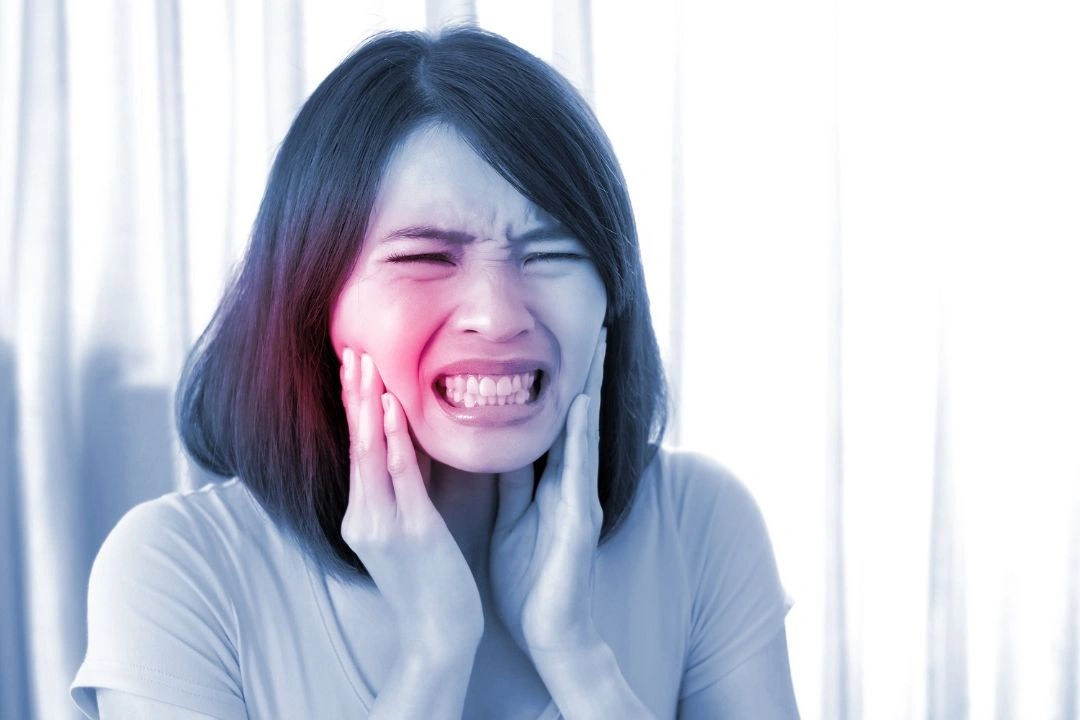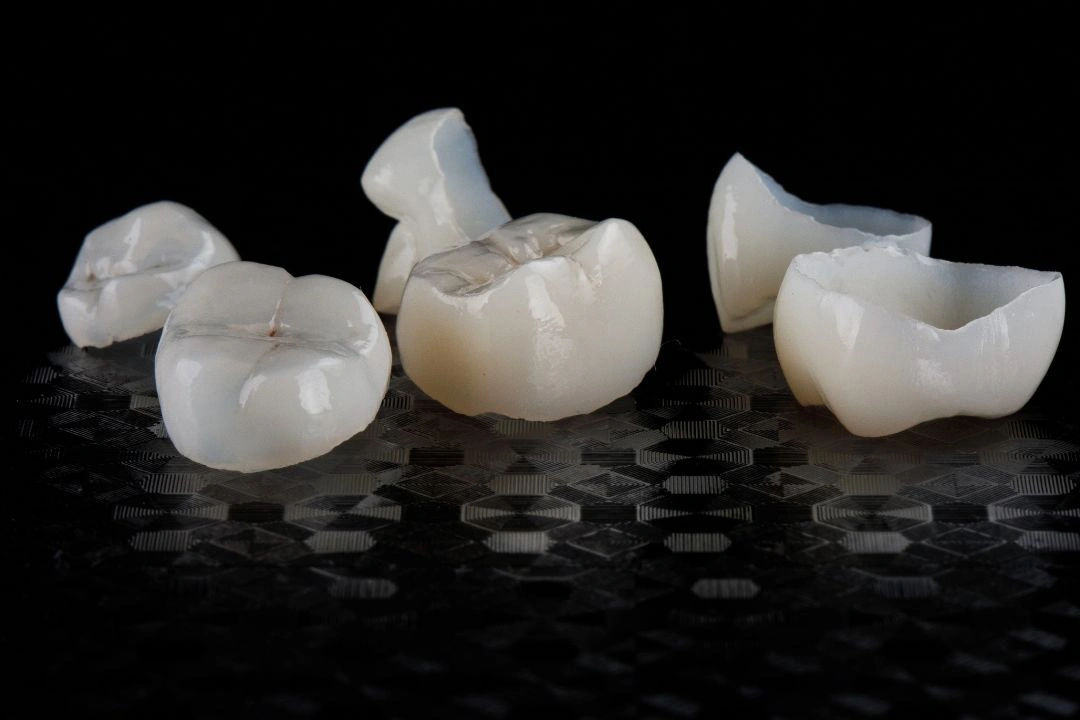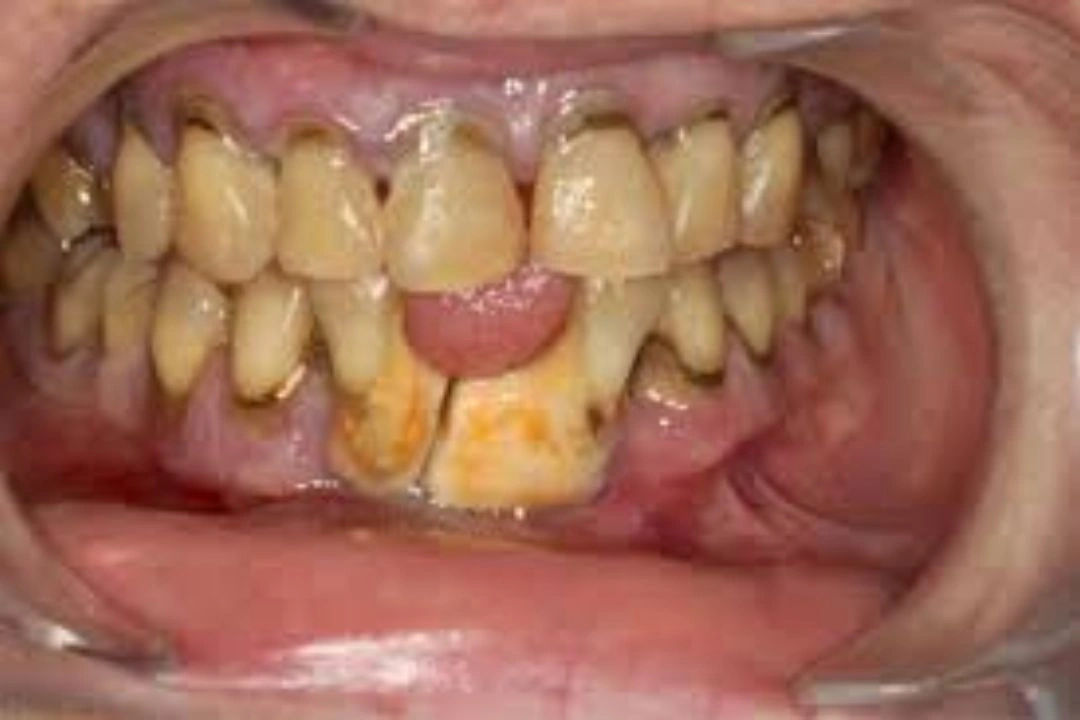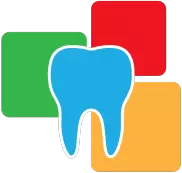When was the last time you saw your dentist? Don't remember? You should do it soon, why you ask? Because even if you are not facing any dental issue, there is a continuous process of plaque and tartar building going on in your mouth which is not thoroughly cleaned with regular brushing and cleaning. Most dentists recommend visiting dentists twice a year to get teeth cleaning done. Teeth cleaning is a process our dentists perform to remove dental plaque teeth cleaning, tartar from a patient's mouth using dental equipment to prevent cavities and periodontal disease. Regular professional teeth cleaning (scaling) helps in maintaining the health of teeth and gums for a more prolonged period.
When the plaque sticks on teeth and gum for too long it pulls away gums from teeth to cause pockets. These pockets retain more food shreds and bacteria to cause gum disease and teeth decay, it cannot be cleaned with regular brushing and flossing. This can further lead to bone and tooth loss. Your routine visit to dentists can help our dentists to catch this gum disease at the earliest to stop tooth structure damage below the gum line. Our dentists clean these pockets with various equipment and the right teeth cleaning treatment. This procedure is known as scaling. Dentists use a curette and ultrasonic scaler to scrape the plaque and tartar from periodontal pockets. It promotes the healing of gums to strengthen teeth.
Root planing and curettage is a suitable dental procedure for everyone and it helps our dentists remove bacteria and infection from a patient's mouth entirely. It reduces gum pockets that usually form between teeth. Curettage helps to reshape the jawbone affected by bacterial growth and infection and strengthen the bone to enhance dental hygiene.
Types of dental cleaning
Prophylaxis teeth cleaning
Prophylaxis cleaning is mainly a routine procedure that our dentists efficiently perform on patients with an overall healthy mouth. This routine cleaning includes the removal of plaque, tartar from the surface of teeth, and gums between the teeth. Prophylaxis teeth cleaning is earnestly recommended to those who regularly visit dentists and follow good dental hygiene. It also removes extrinsic stains from the surface of the teeth. So book your appointment now.
Scaling and root planing
The process of scaling and root planing is divided into two parts. Our best dentists clear the plaque and tartar thoroughly from below and above the gum line and make sure to clean till the bottom of the pocket, this process is called scaling. Root planing is smoothing tooth roots to promote gums to re-attach with teeth. It is frequently recommended to the patients with gum disease such as periodontitis/ pyorrhea. It involves smoothening/polishing the teeth' surface. Teeth Polishing is the finishing procedure that our dentists perform to remove bacteria and stain after scaling and root planing treatment. A polished tooth offers a dazzling smile, reduces plaque build-up and it can get rid of bad breath. Our dentists recommend getting dental polish twice a year to keep away swollen gums, receding gums, and toothache.
Gross debridement -
A person who has not visited dentists for a prolonged period tends to have a lot of debris and plaque attached to gums, teeth, and pockets, our dentists treat such cases with a deep cleaning to remove tartar/calculus and plaque from all areas in the patient's mouth, this process is known as gross debridement. In the process of Gross debridement, our dentists numb the area of the patient's mouth with anaesthetic and remove the calculus with handheld equipment or ultrasonic devices which implement extreme vibrations and water blasts to clean teeth thoroughly.
In such cases, minimum scaling is finished in a minimum of two dental appointments spaced at a gap of 15 days to allow the repositioning of the gums. At the final visit, dental polishing is carried out. Finally, dentists again check for any improvements from the therapy.
During the teeth cleaning process, our dentists start with a physical examination of the patient's entire mouth. This allows our dentists to determine the level of plaque/ yellow coating on the patient's teeth and choose professional teeth cleaning to remove the plaque and infection (if any). Our dentists use a scaler from well-known brand Woodpecker to remove plaque and tartar around the gum line and between the teeth of the patient. Once the tartar, stains, etc. are removed our dentists offer teeth polishing or fluoride painting on teeth to complete the treatment. Fluoride varnish makes your tooth enamel more resistant to cavities. Polishing provides a glossy surface that prevents plaque and debris accumulation over the patient's teeth and makes them bright. Additionally, our teeth whitening services help achieve a brighter, whiter smile, enhancing the overall appearance of your teeth.
Teeth cleaning can help a patient get a brighter smile. It removes plaque, tartar from a patient's mouth which removes bad breath and enhances the dental health of the patient. It prevents gum disease and tooth and bone loss. Most importantly it encourages a patient with boosted confidence without any complicated procedure. Getting teeth cleaning at least once a year is very important as it can help you save money by stopping gum diseases leading to serious consequences. To encourage the patient for regular teeth cleaning, the management has decided on a fairly low dental cleaning cost. The dentists at AMD Dental Clinic make sure of a comfortable, quick, and thorough teeth cleaning process in Jaipur.
- A-3, Natraj Nagar near Imli Phatak, Jaipur-302015
- +91 9945826926
- contact@amddentalclinic.com

Protect Your Teeth from Sensitivity – Expert Tips Inside!
Say goodbye to tooth sensitivity with expert tips! Learn how to protect your teeth, reduce discomfort, and enjoy a pain-free smile with effective remedies. Read now!

Shine Like a Star! Best Dental Crowns for a Flawless Smile
Get a flawless smile with the best dental crowns at AMD Dental Clinic! Restore damaged teeth with durable, natural-looking crowns. Book your consultation today for a radiant smile!

Pyorrhea Treatment: Can You Reverse Gum Disease Naturally?
Discover effective Pyorrhea treatment options and learn how to reverse gum disease naturally. Explore home remedies, professional treatments, and prevention tips for healthier gums.
FAQs
What is teeth cleaning?
Teeth cleaning, also known as dental prophylaxis, is a vital preventive dental procedure that removes plaque and tartar buildup from your teeth. Plaque is a sticky film that forms on teeth due to bacteria in the mouth. If left unremoved, plaque hardens into tartar (calculus), which can only be removed by a dental professional. Regular teeth cleaning helps prevent cavities, gum disease, and other oral health problems.
What are the benefits of teeth cleaning?
Teeth cleaning offers numerous benefits for your oral and overall health: * Prevents tooth decay and gum disease * Maintains fresh breath * Improves overall oral health * Helps identify potential dental problems early * Contributes to a brighter and healthier smile * Regular cleanings can help reduce the risk of systemic health problems linked to poor oral hygiene.
What happens during a teeth cleaning?
A typical teeth cleaning appointment involves several steps:
- A dental hygienist will review your medical and dental history.
- They will then perform a thorough oral examination to assess your teeth and gums for any signs of problems, including the need for a composite dental filling.
- Using ultrasonic scaling equipment or manual scaling tools, plaque and tartar will be removed from the surface of your teeth and below the gum line.
- Your teeth will then be polished with a special paste to remove surface stains and leave them smooth.
- Finally, the hygienist will floss your teeth and provide you with oral hygiene instructions.
How often should I get my teeth cleaned?
The recommended frequency for teeth cleaning typically depends on your individual oral health needs. In general, most patients benefit from professional teeth cleaning every six months. During your dental checkup, our dentists will assess your oral health and recommend the appropriate cleaning schedule for you.
How can I maintain good oral hygiene between cleanings?
Maintaining good oral hygiene practices at home is crucial for optimal oral health between cleanings. Here are some key steps: * Brushing your teeth twice a day for two minutes with a fluoride toothpaste * Flossing daily to remove plaque and debris from between teeth * Maintaining a healthy diet and limiting sugary drinks * Scheduling regular dental checkups and cleanings
